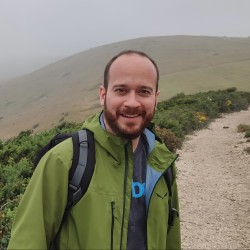Federated learning with application to photovoltaics
Start date
1 October 2024Duration
3.5 yearsApplication deadline
Funding source
UKRI and/or University of SurreyFunding information
We are offering the UKRI standard stipend (currently £18,622 per year) with an additional bursary of £1,700 per year for full 3.5 years for exceptional candidates. In addition, a research, training and support grant of £3,000 over the project is also offered. Full home or overseas tuition fees (as applicable) will be covered.
About
Recent advances in Deep Learning models have produced significant breakthroughs in various fields, including protein structure prediction, drug discovery, and, more recently, material science. Common to all these tasks is the challenge of learning how to propose “good” answers based on existing local data. Larger improvements could be seen if research centres having different datasets could collaborate and train these models collectively. However, sharing data is usually not viable due to privacy-protecting regulations (GDRP) and trade secrecy.
Federated Learning (FL) is the novel machine learning paradigm that enables model training across decentralised and distributed centres without sharing data. In this approach, instead of collecting data from all devices in a server for training, models are trained locally on individual devices, each holding their own dataset, and only model updates are shared and aggregated centrally.
However, FL does come with its own set of challenges:
- Feature Distribution Differences: Silos may have different distributions of features, making it challenging to create a global model that performs well across all silos.
- Labelling Discrepancies: Labels assigned to data in different silos may vary, leading to challenges in aggregating and interpreting the learning signals.
- Sensitive Information Exposure: Despite not sharing raw data, there's a risk of exposing sensitive information through model updates, especially if the updates are not properly anonymised or protected.
- Membership Inference Attacks: Adversaries may attempt to infer the presence or absence of specific data in a silo, raising concerns about privacy breaches.
By solving these challenges and enabling researchers to train models on their own data, federated learning can accelerate the discovery of new materials. In this project, you will develop algorithms for Federated Learning with applications to industrial processes with applications to perovskite solar cells.
Lead halide perovskites are an emerging class of materials pushing the efficiencies of photovoltaic technologies. One of the key challenges in perovskite, as identified within Surrey, is the generation of iodine from iodides, which is particularly driven by interactions between the perovskite ions and light/moisture and buried charge transport layers. While a small number of strategies have been proposed to tackle these, a broader computational approach is required to screen iodine scavengers that can ensure that the iodine species does not lead to a reduction in device lifetime.
We aim to screen for promising candidates who will develop novel cross-silo Federated Learning techniques and apply them in the context of identifying iodide scavengers in a distributed scenario. These approaches will be supplemented with supporting experimental activities to be carried out in the ATI and with the ongoing broader collaborations with leading groups in Imperial College London and Cambridge.
Eligibility criteria
Open to both UK and international candidates.
Up to 30% of our UKRI-funded studentships can be awarded to candidates paying international rate fees. Find out more about eligibility.
You will need to meet the minimum entry requirements for our Computer Science PhD programme. You should have a strong background in CS and an interest in applying it to energy materials.
How to apply
Applications should be submitted via the Computer Science PhD programme page. In place of a research proposal you should upload a document stating the title of the project that you wish to apply for and the name of the relevant supervisor.
Studentship FAQs
Read our studentship FAQs to find out more about applying and funding.
Application deadline
Contact details
Pedro Porto Buarque de Gusmão

Studentships at Surrey
We have a wide range of studentship opportunities available.

